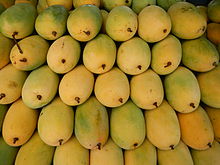Registration Open for August Medication Disposal Training for LTCs
Source: CDPHE, Hazardous Materials and Waste Management Division Registration is now open for the Proper Drug Disposal for Long Term Care Facilities training sessions! By September 1, 2013 Long Term Care Facilities (LTCFs) will be required to certify that they are properly disposing of pharmaceutical and other wastes. Please join representatives from CDPHE's Solid and Hazardous Waste Program for an overview of the requirements and get information that will help keep your facility in compliance. The workshop material is specifically geared toward LTCFs and registration is open to representatives of any licensed Colorado LTCF. The content will be most useful for Administrators, Consulting Pharmacists, Directors of Nursing, and Directors of Facilities.The sessions will be held on: Monday, August 5, 2013 from 8:00 a.m. till 12:00 p.m.; OR Thursday, August 22, 2013 from 8:00 a.m. till 12:00 p.m. Both sessions will be located at: Colorado Department of Public Hea...






